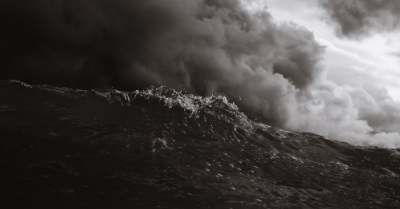|
My blog posts revolve around my interests and vocation as a historian: the intersection of history and contemporary church life, the intersection of history and contemporary politics, serendipitous discoveries in archives or on research trips, publications and research projects, upcoming conferences, and speaking engagements.
I sometimes blog for two other organizations, the Canadian Baptist Historical Society and the Centre for Post-Christendom Studies. The views expressed in these blogs represent the views of the authors, and not necessarily those of any organizations with which they are associated. |
|
It is hard not to be afraid in the midst of a pandemic. And as we (here in Ontario) face yet again a furthering of lockdown restrictions, it is easy to fear going shopping for essentials in the presence of those who may carry the dreaded Covid 19 virus.
When fear lurks in my heart, I often think of John Wesley’s[1] iconic encounter with German Moravians on a ship in the midst of a cold Atlantic winter storm in January 1736. And I am reminded that my way forward in the pandemic is to “shop like a Moravian.” Sailing across the Atlantic in a relatively small wooden ship in the eighteenth century was, as one author notes, “not for the weak at heart.”[2] What made it worse for Wesley was that he had never before been on a ship and had a fear of the ocean from youth.[3] Yet there he was, tossed about it the dark with no means of rescue. And then he saw the Moravians, fearlessly singing and praying in the midst of a storm while he and others wailed in fear. Wesley described the event this way: “In the midst of the psalm wherewith their service began, the sea broke over, split the mainsail in pieces, covered the ship, and poured in between the decks, as if the great deep had already swallowed us up. A terrible screaming began among the English. The Germans calmly sang on. I asked one of them afterward, ‘Were you not afraid?’ He answered, ‘I thank God, no.’ I asked, ‘But were not your women and children afraid?’ He replied, mildly, ‘No; our women and children are not afraid to die.’” (January 1736) The Moravians had a vivid sense of the presence and protection of God, and that led to their being able to deal with their fear. As others cried and cowered, they were courageous. Wesley was profoundly impressed with their faith – something that he as a priest of the church lacked. However, in subsequent encounters with the Moravians he too grew to become like them. And as result, he too could face the dangers of ministry with a fearless courage that impressed even his opponents. The current pandemic can be a fearful time. And there are many ways to survive and even thrive in the midst of it. What we can learn from Wesley is that one way to be courageous is for us to imitate the Moravians. Or, stated differently, “shop like a Moravian.” [1] An Anglican priest and key founder of Methodism. [2] Richard P. Heitzenrater, Wesley and the People Called Methodists (Nashville: Abingdon, 1995), 58. [3] Richard P. Heitzenrater, Wesley and the People Called Methodists (Nashville: Abingdon, 1995), 58.
0 Comments
Leave a Reply. |
Archives
May 2024
|

 RSS Feed
RSS Feed
